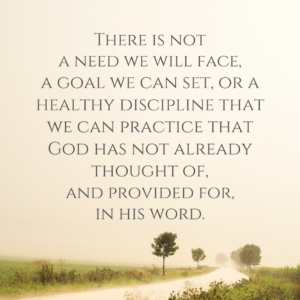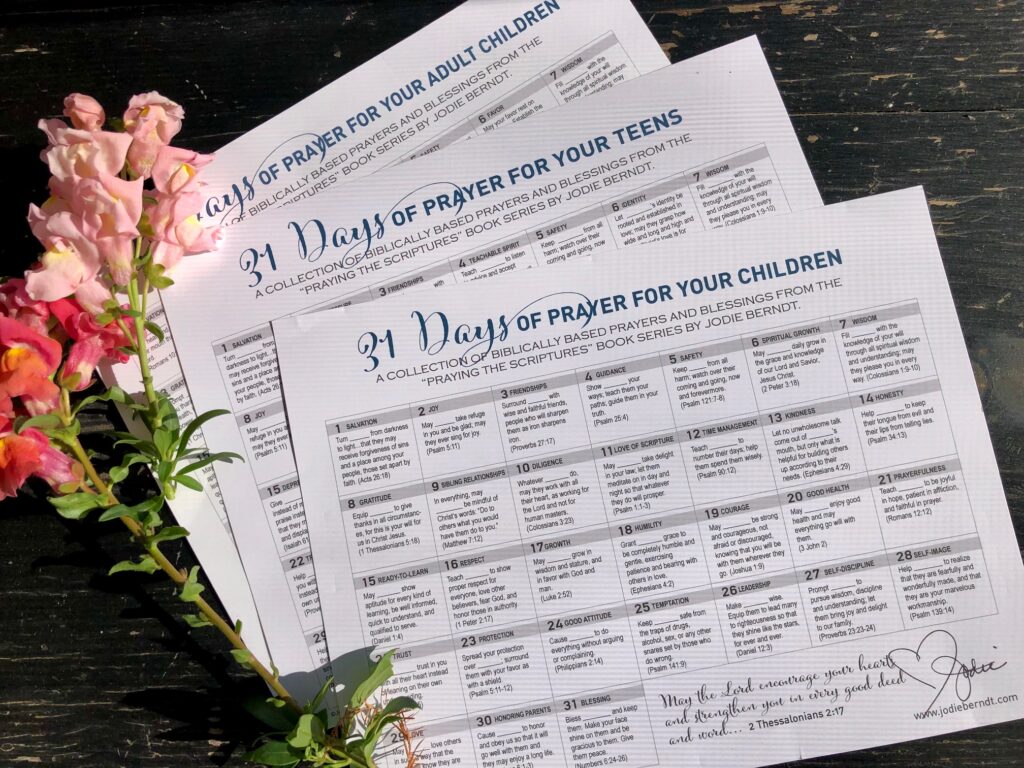For the word of God will never fail.
I read those words–a line from Luke’s gospel–and stopped. I’d been making my way through Ann Voskamp’s The Greatest Gift, and when she got to the part about Mary and the angelic visit, a story recorded in Luke 1, I thought there must be some mistake. I knew Luke 1:37 (it was the first verse our son ever learned) and that definitely was not it. The verse I knew, and the one Robbie memorized as a preschooler, went like this: “For nothing is impossible with God.”
Could I be remembering wrong? (Maybe don’t answer that.)
I flipped open my Bible–an old NIV–and sure enough, that’s what Luke 1:37 says: “Nothing is impossible with God.”

Well then.
Could Ann Voskamp be wrong? I didn’t think so.
Curiosity piqued, I decided to dig. A quick search on Bible Hub unearthed 30 different versions of the same verse:

The NIV (which was updated in 2011) says: “For no word from God will ever fail.”
In the NLT (which The Greatest Gift uses) it is almost the same: “For the word of God will never fail.”
But the ESV renders the verse the way I remembered: “For nothing will be impossible with God.”
A Colossal Linguistic Mistake?
How, I wondered, could the translators come up with such different wordings? Was this some sort of colossal linguistic mistake? Surely some Bible Brainiac would have noticed this whoopsie before.
(Okay, so I realize that comparing Bible translations doesn’t quicken everyone’s pulse, but stick with me here. We’re getting ready to pivot.)
As I pondered the contrast in meanings—some versions emphasizing the dependability of God’s word; others focusing on his power to do anything—it hit me: The different versions were not in conflict at all. Rather, they were two sides of the same coin.
Nothing is impossible with God because his word gets the job done.
Now, you won’t find that particular rendering in any translation, but you get my point: God’s word does not fail. It makes anything possible.
My favorite illustration of what this looks like in real life (and if you’ve been around this blog for a while, you’ve heard this one before) is when God said, “Let there be light.” Had you or I issued such a decree, we’d have to flip a switch or light a match or do something to scatter the darkness. But not God. All God had to do was speak and light happened.
God’s word makes things happen. Which is why I love wrapping my prayers in the language of Scripture, allowing the Bible–God’s written word–to shape my thoughts and desires. I want to tap into the full scope of Luke 1:37, knowing that nothing is impossible with God and that his word will not fail. I want to have a heart like Mary’s, who responded to the angel’s seemingly impossible news in Luke 1 with these words: “I am the Lord’s servant. May your word to me be fulfilled.”
31 Days of Praying God’s Word
I’ve never been much of a New Year’s resolution person, but I can’t think of a more powerful or satisfying way to kick off 2021 than to spend the first month praying like Mary did–asking God to fulfill his word in the lives of the people I love. And if that appeals to you too, I’d like to invite you to join me in January for 31 Days of Prayer, Mary-style.
As Ann Voskamp tells it, Mary kneels “not as a woman producing, performing, or perfecting but simply bending before a God who has all the power to dispatch angels, enfold himself in embryonic cells, choreograph the paths of stars–a God who quietly beckons every man, every woman to simply come, bend, make a space, receive.”
Our Heavenly Father has the power to do the impossible—whether the need is in relationships, character traits, health concerns, faith issues, or anything else—and his word will not fail. All we need to do is simply bend before him and receive.
As you read your Bible this month (or this year), be alert to verses that might serve as prayer prompts. If you’d like help with the picking, you can download a 31-Day Prayer Calendar here, or join me over on Instagram or Facebook, where I’ll be sharing a new verse every day in my Stories, something to help us pray for our children or for anyone who’s claimed some space in our hearts.
Today’s prayer is for a loved one’s salvation…

Heavenly Father,
Turn _____ from darkness to light…that they may receive forgiveness of sins and a place among your people, those set apart by faith. (Acts 26:18)
Amen
❤️
P.S. If you’re looking for some more good prayer prompts for your kids (or grandkids!), this post from my pal Susan Alexander Yates reveals three crucial things we can ask God to do in their lives.
And if you’d like a place to record your scripture prayers–as well as God’s answers–this year, I want to remind you about my most favorite prayer and planning journal, The Growth Book.

The Growth Book comes with space to record goals, prayers, memory verses, and more. This year, I ordered the bonus pack of “Study Deeper” stickers to help keep me organized as I learn about different topics. And I went ahead and printed some pix of our crew to tuck into the pages of the journal and serve as prayer prompts:

If you want a Growth Book for yourself or a friend, use the promo code “growingin2021” (exclusive to JodieBerndt.com readers!) to get 10% off. I don’t make a commission on sales; I just love sharing my favorite things. 😊
HAPPY NEW YEAR!



























